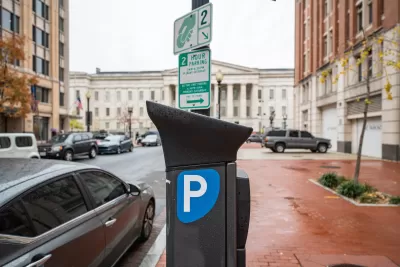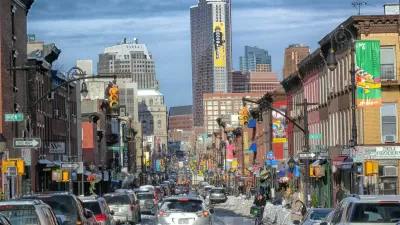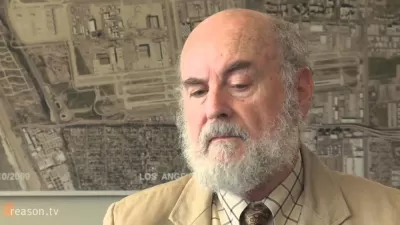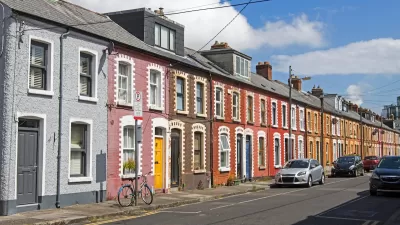The District is losing out on hundreds of thousands in potential revenue while encouraging residents to store cars on valuable public land.

In an opinion piece in Greater Greater Washington, Joshua Peacock argues that “Street parking in DC is way too cheap,” and taxpayers cover much of the cost.
Charging only token amounts for extremely valuable land creates an incentive for residents and commuters to drive their personal vehicles into the city and store them, using DC’s land in ways that make the streets less affordable, less welcoming, and more congested.
Peacock lays out the landscape: “Released in December 2021, moveDC reported that DC had 150,000 Residential Parking Permit (RPP) spaces, 20,000 metered spaces and 230,000 other spaces.” The construction costs for one parking space is, on average, $8,600. Looking at residential parking permits, Peacock notes that “At the current charge of $50/year for a residential parking permit, it would take 172 years to cover the cost of constructing that space.”
Meanwhile, the District’s highly coveted 20,000 metered parking spaces cost $2.30 per hour, which would add up to $14,352 per space per year if permit spots were priced the same. Private parking costs around $2,700 per year. Peacock makes the case that the $50 residential parking permits are woefully underpriced, meaning that “DC taxpayers are subsidizing 150,000 RPP spaces throughout the city to the tune of up to $558 per resident (all 712,000 of us in the 2020 census), per year.”
Peacock doesn’t recommend a sudden spike in permit costs, but suggests some steps the District could take to start remedying the inequitable situation, such as rewarding residents who do not use RPPs through ‘parking buyouts’ or charging for permits based on vehicle size and weight.
Echoing Donald Shoup, Peacock reminds readers, “There is never such a thing as free parking.”
FULL STORY: Street parking in DC is way too cheap

Planetizen Federal Action Tracker
A weekly monitor of how Trump’s orders and actions are impacting planners and planning in America.

San Francisco's School District Spent $105M To Build Affordable Housing for Teachers — And That's Just the Beginning
SFUSD joins a growing list of school districts using their land holdings to address housing affordability challenges faced by their own employees.

The Tiny, Adorable $7,000 Car Turning Japan Onto EVs
The single seat Mibot charges from a regular plug as quickly as an iPad, and is about half the price of an average EV.

As Trump Phases Out FEMA, Is It Time to Flee the Floodplains?
With less federal funding available for disaster relief efforts, the need to relocate at-risk communities is more urgent than ever.

With Protected Lanes, 460% More People Commute by Bike
For those needing more ammo, more data proving what we already knew is here.

In More Metros Than You’d Think, Suburbs are Now More Expensive Than the City
If you're moving to the burbs to save on square footage, data shows you should think again.
Urban Design for Planners 1: Software Tools
This six-course series explores essential urban design concepts using open source software and equips planners with the tools they need to participate fully in the urban design process.
Planning for Universal Design
Learn the tools for implementing Universal Design in planning regulations.
Smith Gee Studio
City of Charlotte
City of Camden Redevelopment Agency
City of Astoria
Transportation Research & Education Center (TREC) at Portland State University
US High Speed Rail Association
City of Camden Redevelopment Agency
Municipality of Princeton (NJ)





























